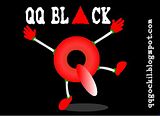Google is everywhere, with its ubiquitous Web search engine, Google Maps for navigation, Google Docs online office suite, Google Checkout shopping and most recently, Google Chrome Web browser. Next up: Google’s Android operating system for mobile phones, likely to debut in the weeks ahead.
The first mobile device built around Android will be carried by T-Mobile in a still-unnamed handset designed by Taiwanese smartphone powerhouse HTC. The Android phone will go up against Apple's iPhone, Research In Motion’s BlackBerry and a host of devices powered by Nokia’s Symbian and Microsoft’s Windows Mobile operating systems. (Msnbc.com is a joint venture of Microsof t and NBC Universal.)
While every market Google has entered is highly competitive, none may be more so than the mobile phone market, specifically the market for smartphones, which can handle e-mail and Web surfing.
Symbian-based phones led in worldwide market share for smartphone mobile operating systems, with 57.1 percent of sales in the second quarter of this year, according to Gartner Research.
That likely reflects Nokia’s status as the world’s largest cell-phone maker. Next in line were Research In Motion, 17.4 percent; Windows Mobile, 12 percent; Linux, 7.3 percent; Apple’s Mac SO X, 2.8 percent; and Palm, 2.3 percent. Another 1.1 percent included Sharp Sidekick devices based on the Danger platform.
In the United States, Research In Motion’s mobile operating system dominates the smartphone market, with 41 percent, according to a February 2008 report by Canalys consulting, with Apple capturing 28 percent, Windows Mobile, 21 percent, and Palm, 9 percent.
Open Handset Alliance backing
While it’s Google that’s putting together Android, it’s also the culmination of work by the Open Handset Alliance, a collaborative group including Google and more than 30 semiconductor and software companies, mobile operators and handset manufacturers. Alliance members include Sprint Nextel, T-Mobile, Intel, Motorola, HTC, eBay, LG and Samsung.
Jason Mackenzie, vice president of HTC America, which uses Windows Mobile in its other phones, is confident about Android’s prospects.
“Millions of people rely on Google services and applications every day on their PCs — whether it’s for search, maps, e-mail,” he said. “We believe that the ability to provide this same rich experience on a mobile device is a powerful proposition for a wide range of consumers.”
While Android is an operating system, it is also an open-source system similar to Linux, upon which it is based. That’s creating a lot of excitement and interest in the kind of programs that will be available for users, including one that can track family members’ whereabouts in an emergency to another that offers a short cooking video, followed by information on nearby grocery stores that carry the ingredients needed for the recipe.
Since its inception, Android has been tweaked and built upon freely by developers, device designers and wireless carriers who have had complete access to Android’s Software Developer Kit. Basically, Android is whatever users and developers want it to be.
That’s in contrast to Apple’s approach with the iPhone. Nine months ago, Apple created a Software Developer Kit offering application makers the same interface and tools Apple uses to develop iPhone software.
But Apple has closely regulated and monitored every program that is being offered through the company’s online App Store.
Android will “create a new, attractive environment to foster innovation and make it easier to bring new ideas to market, ultimately ensuring consumers a richer, more personalized mobile experience,” said Mackenzie.
Android Market
Beyond the touchscreen and customizable home page of an Android device is what will be known as the Android Market for add-on software. After all, a smartphone, just like any computer, is only as useful and engaging as the programs its runs.
On the face of it, it sounds like Apple’s App Store, which has both free and paid programs. But in an Aug. 28 post on the Android Developers blog, Google's Mobile Platform Program Manager Eric Chu touched on some of the differences.
“Developers will be able to make their content available on an open service hosted by Google that features a feedback and rating system similar to YouTube,” he wrote. “We chose the term ‘market’ rather than ‘store’ because we feel that developers should have an open and unobstructed environment to make their content available.”
Francesco Roveta, director of eBay Mobile, is not concerned about a lack of quality control in an open Android Market.
“EBay's experience with marketplaces demonstrates that end-users always determine the success of an application, a business model and a platform,” he said.


















0 comments:
Post a Comment